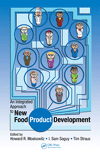The snack and bakery industry continues to face a difficult road when it comes to staffing. Challenges related to filling open positions for skilled and unskilled production personnel have persisted for years. But the past several months have proven particularly trying as employers seek to fill available jobs with individuals from an increasingly wary, pandemic-weary America. Priorities are shifting through intensified self-reflection and significant societal challenges. Add in perennial waves of retiring, old guard, veteran bakery staff—without apprentices to follow in their footsteps—and the pressure incrementally increases to find solutions to filling our persistent workforce gap.
Future visions
“For years, we’ve been watching the demographics go against us when it comes to our workforce,” says Andy Drennan, senior vice president, Food Processing Suppliers Association (FPSA), McLean, VA. “Our older workers were retiring while we failed to replace them with the next generation of workers. And then COVID hit.”
For some, these factors have prompted equipment investments. “Many processors are forced to automate their production lines to make up for this reduced workforce, just to get product out the door,” says Drennan. “This new equipment requires more training to help workers make the most of this technology. Luckily, recent studies show that workers, especially our younger workforce, want more training. They see it as an investment in them and a way to build their career.”
Given the fast pace of change in the food industry, professional development is critical to keeping up with—or exceeding—the competition, says Drennan. “Set your baseline,” he advises. “What is your workforce currently good at? What is it not? What are the skills your company needs in its workforce for the next five years? Which of these skills can be hired, and which do you need to develop with your existing staff? These questions must all be answered to identify next steps.” He notes an abundance of resources available for development, including at local universities, community colleges, relevant trade associations, and trade schools.
“The future of the wholesale baking industry is dependent upon attracting, training, and retaining talent at all levels of the workforce,” says Robb MacKie, president and CEO, American Bakers Association (ABA), Washington, D.C.
Workforce development is such a pressing topic right now because of the unprecedented disruption we’ve seen across the industry the past few years, says Judi Lazaro, senior category director, food safety, AIB International, Manhattan, KS. “Many operations have been working at maximum capacity just to meet demand, but have neglected the development of their teams. For many, that has left a massive skills gap among their workforce, which they’re now trying to address.”
Technically trained personnel are in particular demand. “Addressing the skills gap felt by so many operations right now will take a focused and committed effort from management to provide their teams with the training they need to meet customer expectations,” says Lazaro. “This will help upskill teams and individuals, providing the necessary workforce to fill open positions, while continuously improving product quality and food safety.”
While the past few years have posed unique personnel challenges, the workforce gap is not new. “I’d argue workforce development has always been a hot topic in our industry,” says MacKie. “The events from the past year and a half, and industry team members’ hard work and dedication, only further reiterate that the most-important thing employers can do is provide support and growth opportunities for their employees.”
People want secure jobs—essential work that doesn’t stop in a crisis. And the baking industry does invest in its employees.
“Many employers already have dedicated continual training programs,” says Christina Donnelly, director, industry relations and strategic initiatives, ABA. “In 2020’s Baking Industry Frontline Workforce Landscape study, ABA and ndp|analytics found 39% of companies spent $1,000 or more per worker on training, while 61% spent less than $1,000 per worker. For comparison, the manufacturing and distribution sector overall spent an average of $672 per learner on training in 2019. Additionally, in 2019, 76% of companies had recognition programs designed to recognize and reward workers for their achievements, up from 15% in 2016.”
The baking industry needs to provide clear career paths to secure and retain—and train—entry-level personnel. “It’s important for companies to communicate how an employee can grow their career in their organization,” says MacKie. “ABA recently surveyed job seekers across the U.S. about their perception of manufacturing careers and found that job seekers identified the three most-appealing reasons to work for a company: providing employees with career paths of how they can advance within the company; investing in the training and development of their employees; and offering opportunities to work in different departments and learn new skills.” ABA offers an Industry Career Paths resource, which helps companies clearly illustrate available growth opportunities available to current and potential employees.
“Additionally, a well-defined, well-executed, and consistent training program is one of the keys to prove an employer’s commitment to their workforce,” says Donnelly. “An employer’s commitment to their workforce creates a productive and positive environment for everyone from the front line to the front office.”
And workforce development is one component of the much-broader, big picture workforce issue, says Emily Bowers, vice president, education and operations, BEMA, Overland Park, KS. “Companies are having a hard time maintaining an adequate number of employees to keep their operations running on a daily basis, which leaves little time to devote to development. The problem is complex. Employees want to understand their jobs, have a defined career pathway, and feel like the company is invested in their success. Providing that developmental infrastructure can be a heavy load, especially when the essential focus is currently on talent acquisition.”
The baking and snack industry is going to need to get creative when it comes to workforce-related challenges, suggests Bowers. “History is a good predictor of the future. In similar business climates what strategies were successful? Can they be retooled for today’s marketplace? Look around new corners. Where can companies find potential talent? What new methods are available to train and develop that talent? Learn from others. What industries are struggling less with workforce issues? What elements of those industries can be adopted or adapted by the baking industry?”
Perspectives from the field
Rod Radalia, vice president of innovation, Aunt Millie’s Bakeries, Fort Wayne, IN, and chairman of the American Society of Baking (ASB) Board of Directors, notes that nearly every industry currently faces a workforce challenge. “With every industry competing for the available labor pool, providing the reasons for that labor force to choose the snack and bakery industry has become a critical topic.”
Radalia suggests offering sign-on bonuses and increasing starting wages to catch the eye of potential hires. “But that has not been enough to retain them once they are hired,” he says. “More is needed to provide that engagement where the hire feels a connection to the job. Career path, relationships, work environment, and benefits will all play a role creating that connection.”
According to Brittny Stephenson Ohr, director of product management, Sugar Foods Corp., Villa Rica, GA, and 1st chair of the ASB Board of Directors: “The job market is crazy right now. Companies of all sizes, in every industry in the world, are struggling to fill open positions. This means new opportunities are plentiful for anyone currently employed but does not feel valued, satisfied, or fulfilled in their current role. Any manager or business owner should be thinking about investing in the people they currently do have showing up every day. How do you reward their loyalty and grow their talents with new opportunities within the business? That’s really why workforce development is more valuable now than ever before.”
Stephenson Ohr notes manufacturing isn’t viewed as glamorous—especially to young professional candidates seeking flexibility in the workplace. “However, what is awesome about food manufacturing companies is our scale and the ability to make an enormous impact,” she says. “Employers can highlight and demonstrate how impactful our products and corporate initiatives are to large groups of people, even around the world. In that case, it takes their small view of this one role within a company and blows it up to help them realize that every job is important and contributes to overall success.”
Jeremiah Tilghman, general manager, Canyon Bakehouse, Flowers Foods, Johnstown, CO, and a member of the ASB Board of Directors, notes several variables challenging workforce issues in the industry today: “The labor force is shrinking. Work-from-home model doesn’t work in manufacturing. Existing baby boomers are retiring. The work-life balance of shift work and the split days off model is unappealing to the next generation.”
But Tilghman recommends some strategies to address this issue:
-
Flexible work schedules. Not one-size-fits-all. Every plant/culture is different. One must understand their situation/plant and adjust.
-
Offer more time off. Considering starting out with three weeks paid vacation. Offer vacation buys.
-
Focus more on development.
-
Create reasons for excitement about the brand and company.
-
Benchmarks for tenure has changed. If you get five years from an employee, you doing well.
-
Offer a la carte incentives. Some want merit in dollars, some in PTO, some in more/better benefits like daycare, discounts, etc.
Shawn Dewey, operations manager, Franz Family Bakery, Portland, OR, and a member of the ASB Board of Directors, sees a need for bench strength—individuals who will emerge as our future leaders. “The more development we can do with our workforce shows their importance, gives ownership, and gives them empowerment,” he says. “The more we empower our workforce, it gives us a base to build for the future.”
A primary strategy for Franz Family Bakery is structure, notes Dewey—stages of training from line worker to foreman, supervisor, and manager. “Each step in the process will need to have different tiers of training to ensure we are giving our employees the tools to be successful,” he says. “Some past failures are due in part to not getting our employees the tools to make transactions to next-level jobs. This, at times, can lead to losing very strong potential employees.”
Dewey says the past way of thinking about on-the-job training or a “sink or swim” mentality does not work with today’s workforce. “We need to get the employees involved with the process and decision-making so they can have clear goals and expectations that they need to meet.”
Continues Dewey: “Employee mentoring is a huge factor—to learn from others who have been through the process to help lead the way and guide them. Again, it’s giving them the tools to succeed. Urban Meyer, coach of the Jacksonville Jaguars, has a great leadership principal, called the 10-80-10 Principle, and it is a great way of looking at mentorship (see “Build an Elite Team - 10-80-10 Principle - Above the Line”).
Ashley Gurney, key account technical services manager, Dawn Food Products, Jackson, MI, and a member of the ASB Board of Directors, notes the baking industry has long neglected an overall decline in industry experience and skill sets. “Initially, this was evident via mid-size operations eliminating training and skill-elevation options under the premise of losing these assets to competitors in and out of the industry,” he suggests. “This followed with larger operations following suit. The net result was a decline of education and experience, leading to the current critical-mass issues in education and experience loss for the industry.”
Gurney notes Dawn Foods offers a comprehensive global training and skillset program for individual customers across the bakery industry. He also points to ASB BakingTECH as a key event to stay abreast of technical topics and industry education.
Opportunities for development
ABA’s professional development programs are dedicated to helping its member companies promote and grow the industry's most-important ingredient: our workforce, notes Donnelly. “ABA’s Bakers Manufacturing Academy best-in-class training solutions provide industry-specific, technical education for bakery production employees, whether they are new to the profession or are growing in their career. Written and developed by baking industry experts, the online learning portal offers students dynamic, interactive instruction, and offers training managers simple student registration, documentation, and progress.” All courses are available in English, with some available in Spanish and Portuguese.
ABA also offers NextGenBaker, dedicated to developing the industry’s rising leaders, notes Donnelly. “300+ baker and supplier executives connect and learn, growing together in the program’s core goals of professional development, public policy engagement, relationship building, and industry trends education.”
ABA’s Leadership Development for Front Line Professionals, produced in partnership with Hearthside University, trains employees to accept new challenges as rising plant-level supervisors.
ABA has stepped into the fray to offer an online resource for open baking industry positions. “Thousands of baking industry careers are available at BakingWorks.org,” says MacKie. “This industry careers site, launched by ABA in 2020, offers a library of career development and resume-building tools, as well as access to thousands of job and internship opportunities and the ability for candidates to upload resumes so hiring managers can contact them directly.”
The baking industry is also proud to employ veterans and military spouses from all branches of service, notes MacKie. “ABA, as part of the Baking Industry Alliance, partners with the USO Pathfinder Transition program to help connect transitioning service members and military spouses with baking industry careers.”
Dedicated strategies for baking industry workforce growth are ongoing. “One of the initiatives of ABA’s strategic plan is to promote and grow the industry via thought leadership that highlights baking industry careers opportunities,” says MacKie. He notes ABA will release a new workforce study in the coming months.
For bakeries who find themselves in need of immediate food safety oversight and guidance, AIB International offers a program called Assign an Expert, says Lazaro. “For operations that are struggling to fill internal food safety roles, our team of experts can quickly step into large complex operations and oversee management, closures, and high-risk issues. They can provide technical expertise either virtually or in-person and for months at a time if needed. While working with your team, they can also provide training to help develop the team’s skills.”
AIB International also offers a variety of virtual, online, and on-site private training options to develop baking and food safety teams, notes Lazaro. “Our training courses are developed not only to upskill, but also empower individuals to make decisions that are focused on product quality and food safety.”
Lazaro also notes AIB’s BakePro Certification training is customized to the baking industry—and the specific needs of the bakery. “Using this in-depth training solution, one of our experts will travel to your facility to train your team and help troubleshoot your challenges in real time on your equipment,” she says. “During that time, they will work alongside your team to cover issues like process control, function of ingredients, product scoring, and troubleshooting.”
Drennan notes that during 2021, FPSA launched the 180 Skills online training platform. “Originally developed for manufacturing companies, this program is very popular, as it eliminates any travel costs for training, allows workers to learn and master their subjects at their pace, and provides a wide variety of courses in technical areas like electricity, lean manufacturing, and automation/process controls for workers in the plant, and soft skills like conflict resolution, time management, and team building for all staff,” he says.
Some workforce solutions involve strategic collaboration. Bowers notes BEMA-U and the Baking Industry Forum (BIF) are both working to provide workforce solutions to the industry. “BEMA-U provides customized training for all levels of an organization to better develop individuals, teams, and leaders. Because this training is specific to a company, unique and particular solutions can be put into place. BIF brings together baker and supplier companies to look at issues from both sides. BIF currently has a task force in place that is engaged in research on workforce best practices and companies in the industry that are making bold moves related to workforce challenges.”
At critical moments in the evolution of a business, boldness can prove quite a valuable asset.










